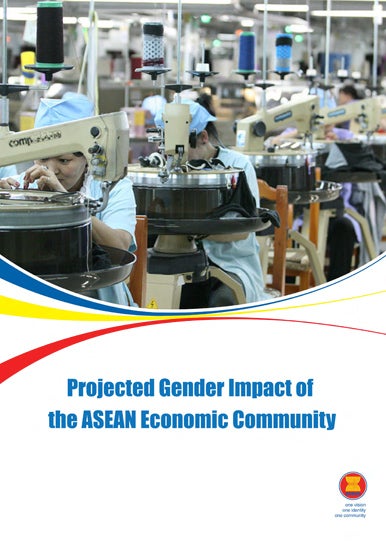
Projected Gender Impact of the ASEAN Economic Community

This report examines how an expansion in regional trade and economic integration impacts women in the ASEAN Economic Community (AEC). The impact of opening up of trade opportunities has always been different for different groups of people, often exacerbating inequalities in the absence of counteractive measures and barriers. While inequalities exist across many dimensions – most notably, economic– the focus of this research is on impact of trade liberalization policies on the inequality between women and men. Using evidence from comprehensive, macroeconomic analyses as well as focused case studies of women’s participation in select priority industries in the ASEAN region, this study seeks to find the answer to an important question: What is the impact of the increasing economic integration in the ASEAN region on its women?
Through a rigorous analysis of trade and labour market data relating to women’s economic participation, the report concludes that the impact of the formation of AEC on women in the ASEAN is going to be significant in terms of the volume of jobs that are created. However, in terms of changing the gender pattern of employment and wages, the impact will be small. The main reason why women are not likely to be materially impacted by a boost in trade, investment and skilled labour integration is because for a vast majority of the women, these are not the sectors that affect their lives. There are vast inequalities in women’s labour force participation in the ASEAN Member States that inhibits their ability to take advantage of the opportunities created by the AEC or other demand side shocks in the job market. The supply of women is the workforce is relatively stable and consistently lower than men due to a combination of social, cultural and institutional factors. Therefore, while the number of women employed may go up, the increase will not necessarily change other employment outcomes: wages, types of jobs and the sectors where women are currently employed.
